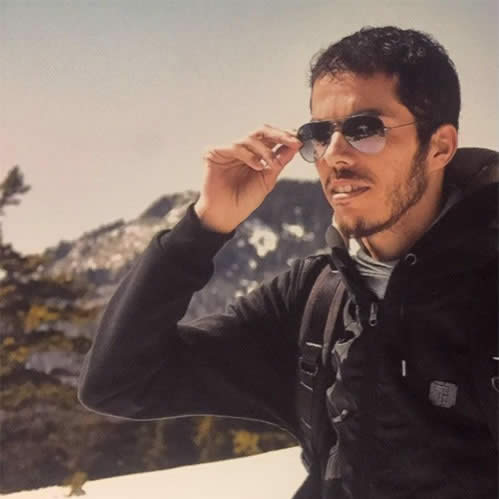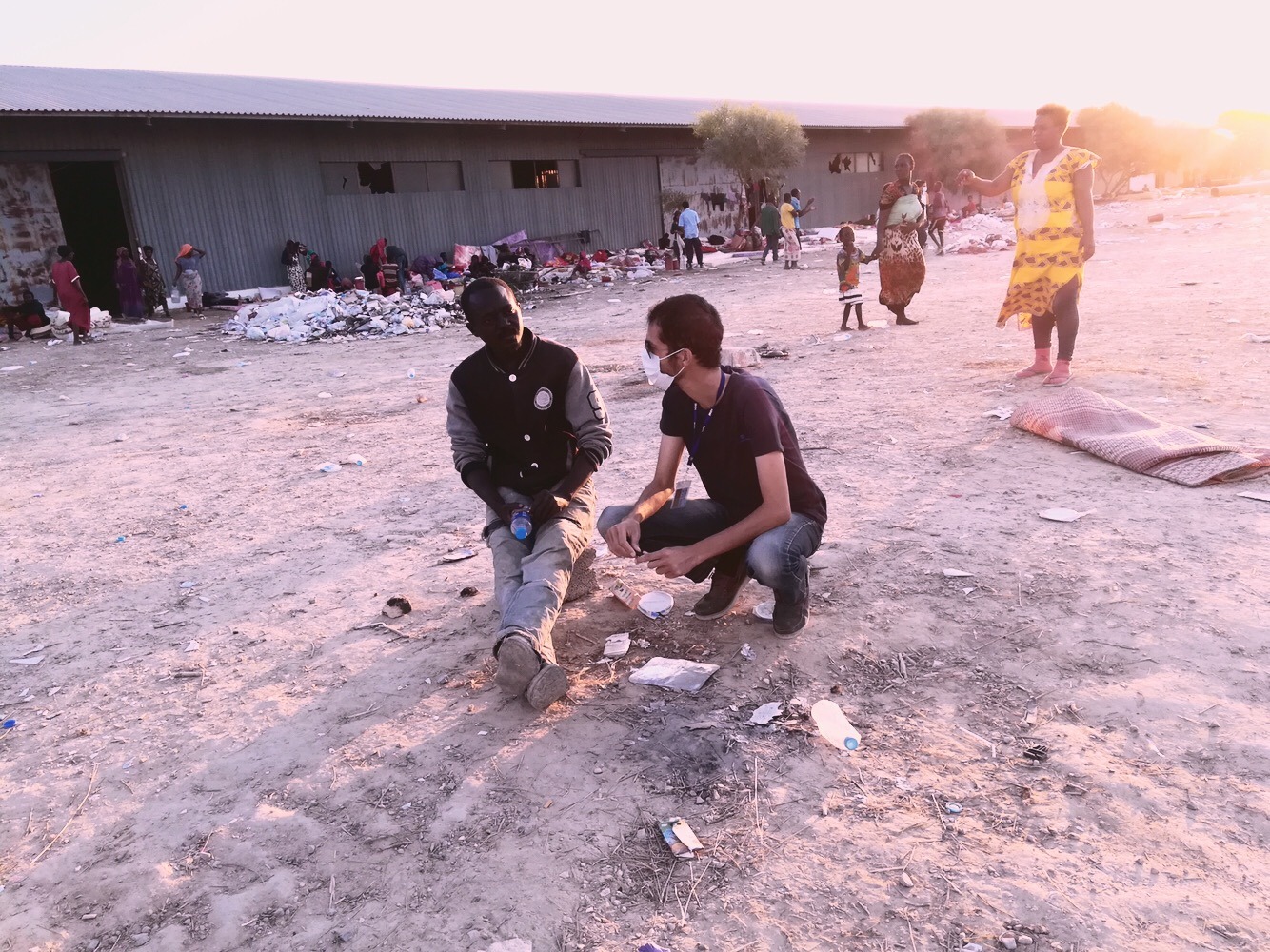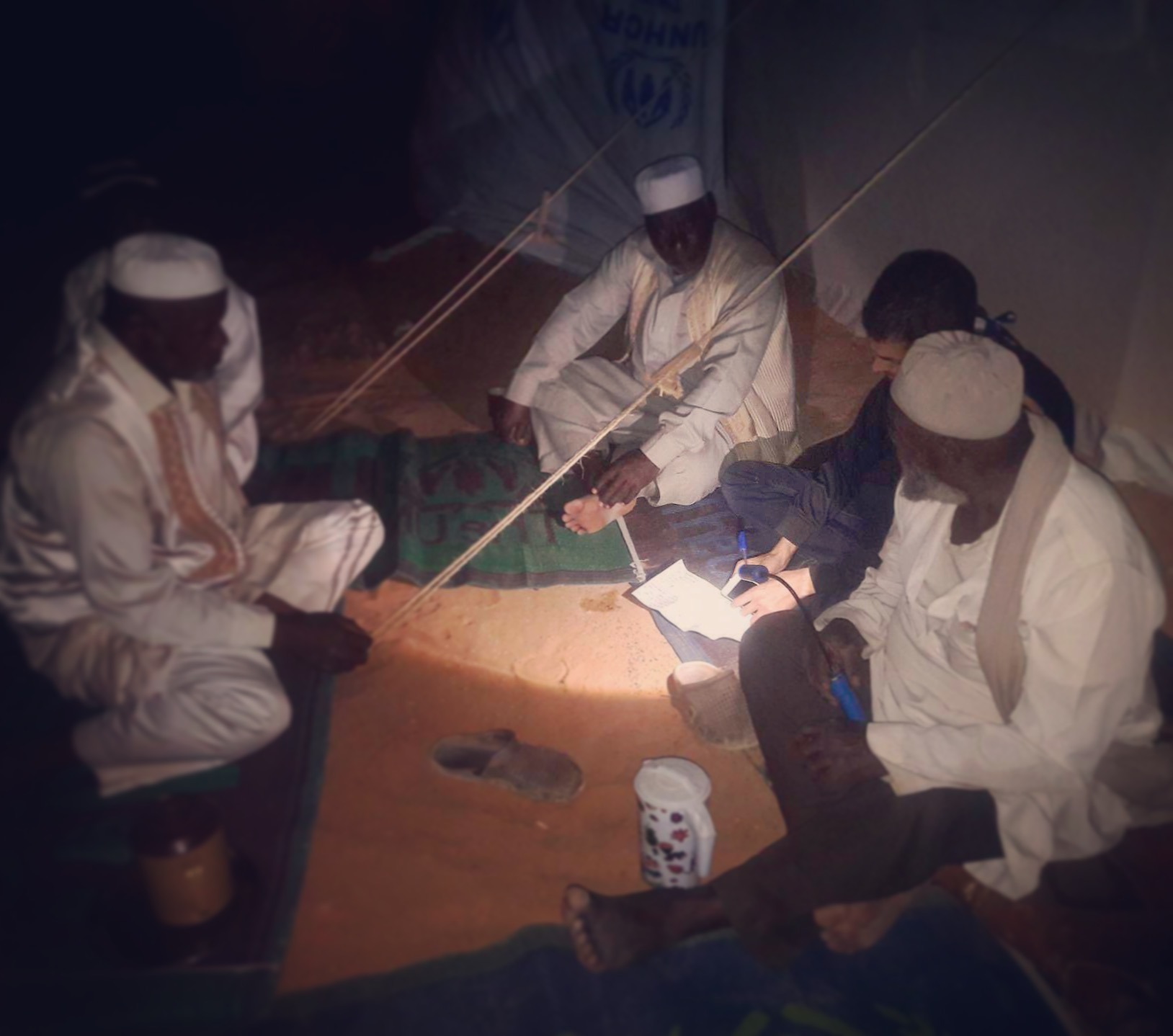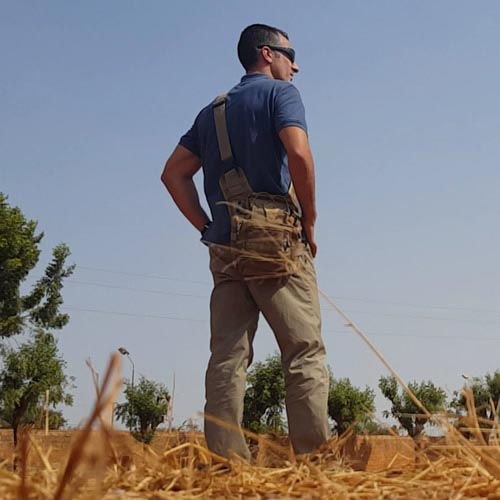Libya Salah Khalifa

I joined the Libyan Scouts in 1998, so helping people is something that’s close to my heart. To be successful in this job, you need to love volunteering. The world is bigger than your city, where you are used to life. We should not be afraid to travel and work in another city because this is how we find exciting experiences.
The DTM project monitors local Libyan nationals and my team is distributed to most Libyan cities. Over the last three years, the details of my work have changed depending on my tasks and responsibilities; for example, I currently manage all three teams for the DTM project in Libya. I also handle the daily follow-ups for all cases of displaced people and migrants who need support in Libya – monitors should be the first to be aware of any emergency operations affecting IDPs and migrants in all of Libya. I then contact my Manager to see what the best plan of action is to support the people who are affected by that incident. The DTM are the most widespread in Libya so we are the first to hear about emergencies. To achieve this, we use locals because they know the language and area better than anyone else.
I like to take responsibility, this was something I did in the Libyan Scouts. I am responsible for a large team and I enjoy it, especially because I feel that we are doing an exceptional job in Libya. Many people need support now and we are trying to help them in every way possible. I am most proud when my team succeeds in helping IDPs or migrants; this could mean assisting them with voluntary return to their homes, free health care or meeting another of their needs.
In 2017, there was an emergency in the town of Sabratha. After the escape of smugglers from the city, the army found more than 5000 migrants near the sea. They were temporarily transferred to the assembly point and we were put in charge of counting them and providing them with urgent assistance (i.e. food and clothing) before being deported to official detention centers in Tripoli and Gharyan.
I was also responsible for helping my colleagues distribute aid. The experience was one of the most painful encounters because of the many sad stories I heard. I stayed with the migrants in the camp for a week – it was a very important exercise to be an onlooker on the suffering of these people; it taught me a valuable perspective on life.
CTG supports me by taking care of the administrative and financial aspects, which allows me to focus on the field work.
The Displacement Tracking Matrix (DTM) is the first of its kind, and it’s the first time I find myself working on this sort of humanitarian project. I look forward to working in other countries and sharing my experiences with people around the world. The future of Libya rests in the hands of my countrymen; we need to agree to rebuild Libya. Through my work, we are protecting migrants and displaced people until the country is rebuilt.
* 768,372 migrants fled the country in 2011 according to MPC Migration Policy Centre Report from the European University Institute http://www.migrationpolicycentre.eu/docs/migration_profiles/Libya.pdf
STORIES FROM
Middle East & North Africa
Rania Kharma, Libya
Field Operations Manager for Community Stabilization Project
Carlos Serrano Mesa, Mali
OPS Officer for Demining



